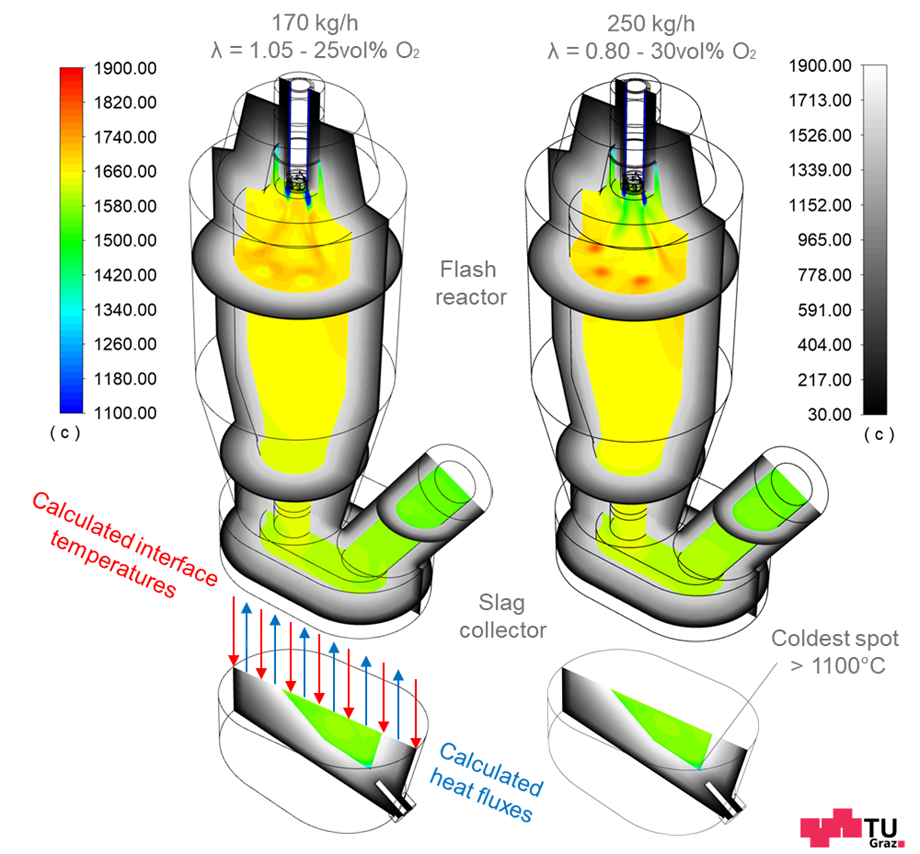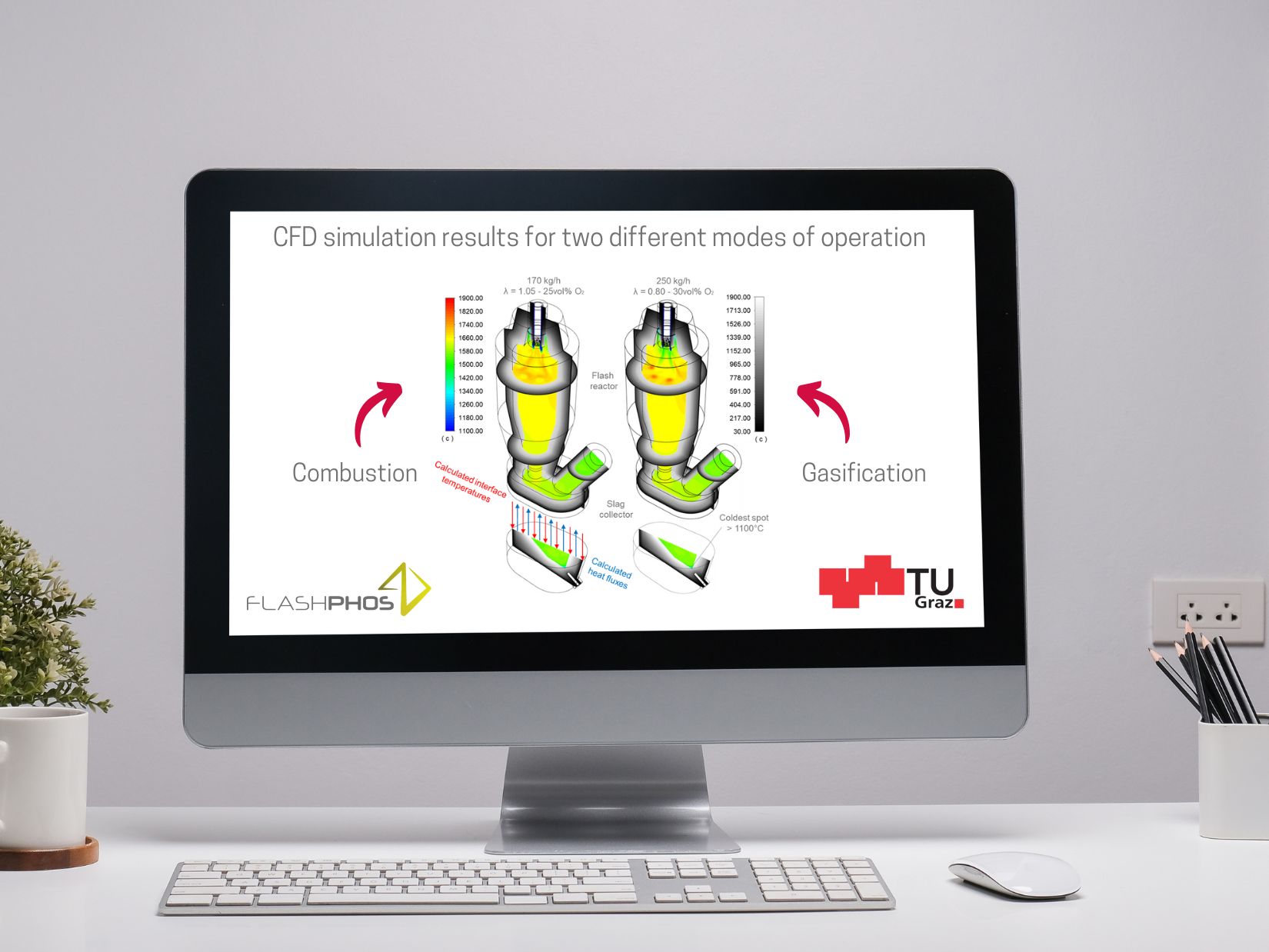Based on the multiphase flow model presented in a previous post, the main research topic for TU Graz is to develop a Computational Fluid Dynamics (CFD) model that can accurately describe the combustion of sewage sludge powder in the Flash Reactor. The model includes the calculation of particle motion as well as particle-gas heat transfer. As the particles heat up, they release a significant amount of volatile compounds. The resulting reaction involves complex chemistry, which was implemented into the model by incorporating detailed and validated reaction mechanisms from literature. Additionally, during this process, the particles melt into slag. This viscous slag is subsequently separated from the gas flow at the reactor walls and collected in a phase separator for extraction. The phase separator, also known as the slag collector, is also incorporated into the CFD model.
The figure below displays temperature distributions obtained through CFD calculations. The upper part of the figure illustrates the temperature distribution in the main part of the reactor, while the lower part represents the phase separator. The temperature range varies from 1,100°C near the tapping hole (indicated by the blue colour) to 1,800°C in the flame zone (depicted in red). The expected temperatures within the refractory walls are visualized using a grayscale gradient.

Figure 1: CFD simulation results for two different modes of operations: Combustion (left) and gasification (right)
Using this cost-effective CFD model, temperatures and gas compositions can be calculated in full 3D. Even during the early design stages, before building a physical prototype, improvements can be made, e.g., regarding injection nozzles and geometries. This helps to prevent costly mistakes. Simulation models like these allow researchers and engineers to gain insight into processes that are otherwise challenging or even impossible to examine in reality. They are therefore valuable tools in research and development.
For further information contact
Benjamin Ortner
Institute of Thermal Engineering, Graz University of Technology
benjamin.ortner@tugraz.at
+43 (316) 873 7314

